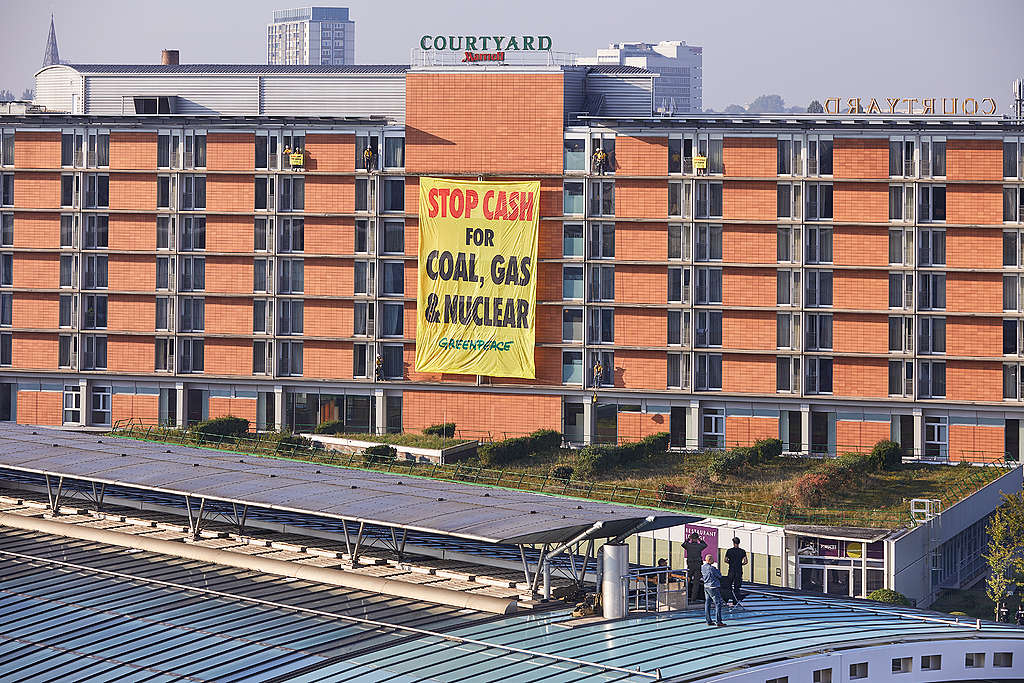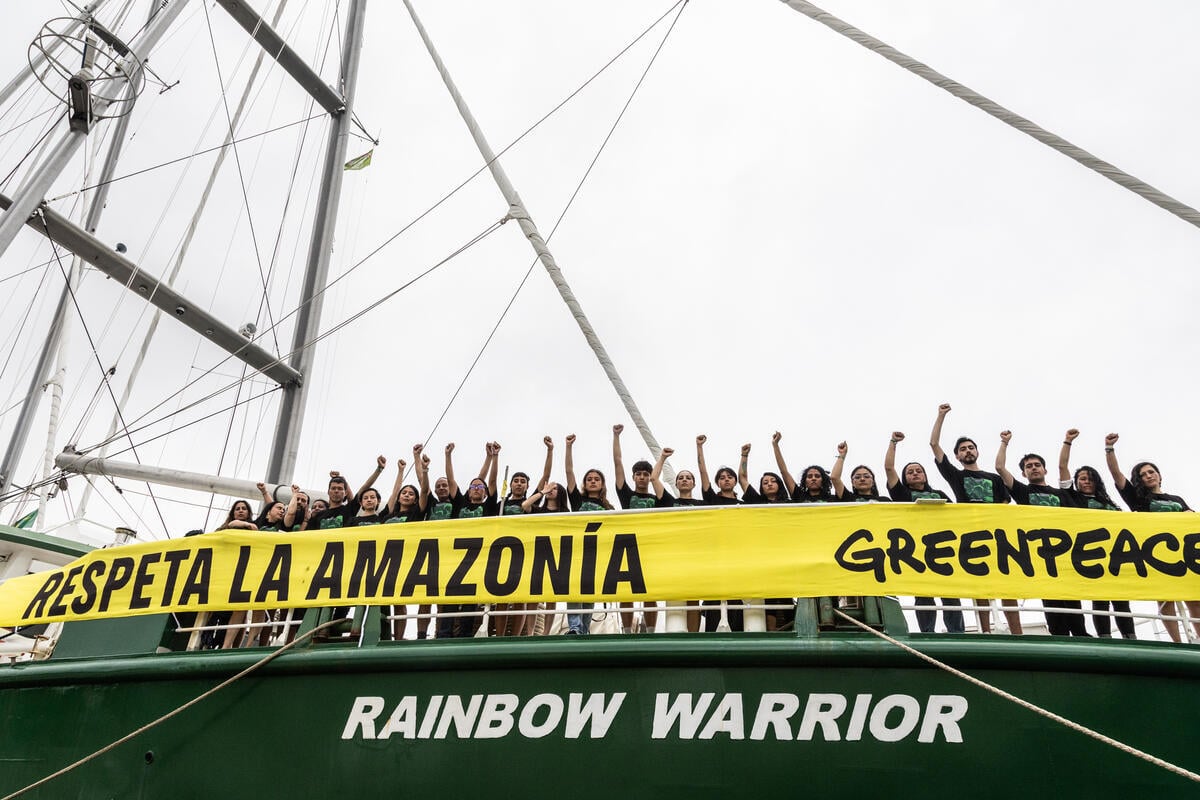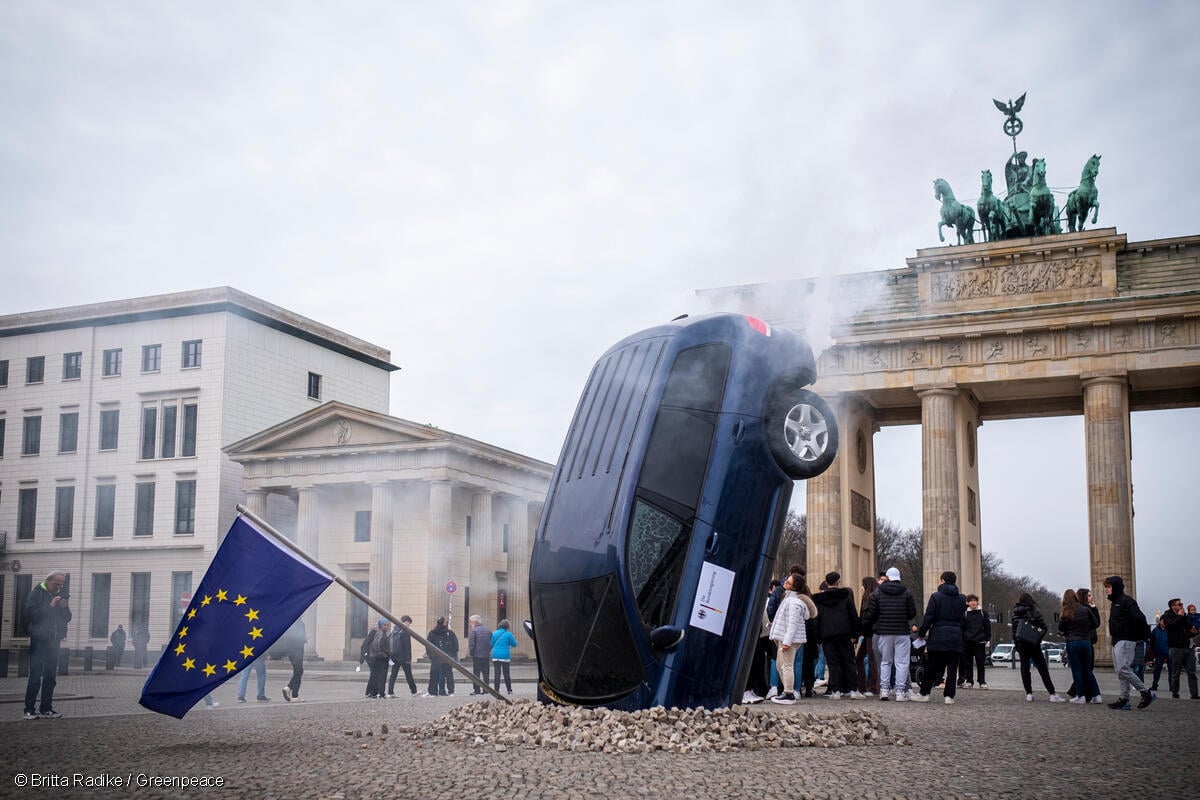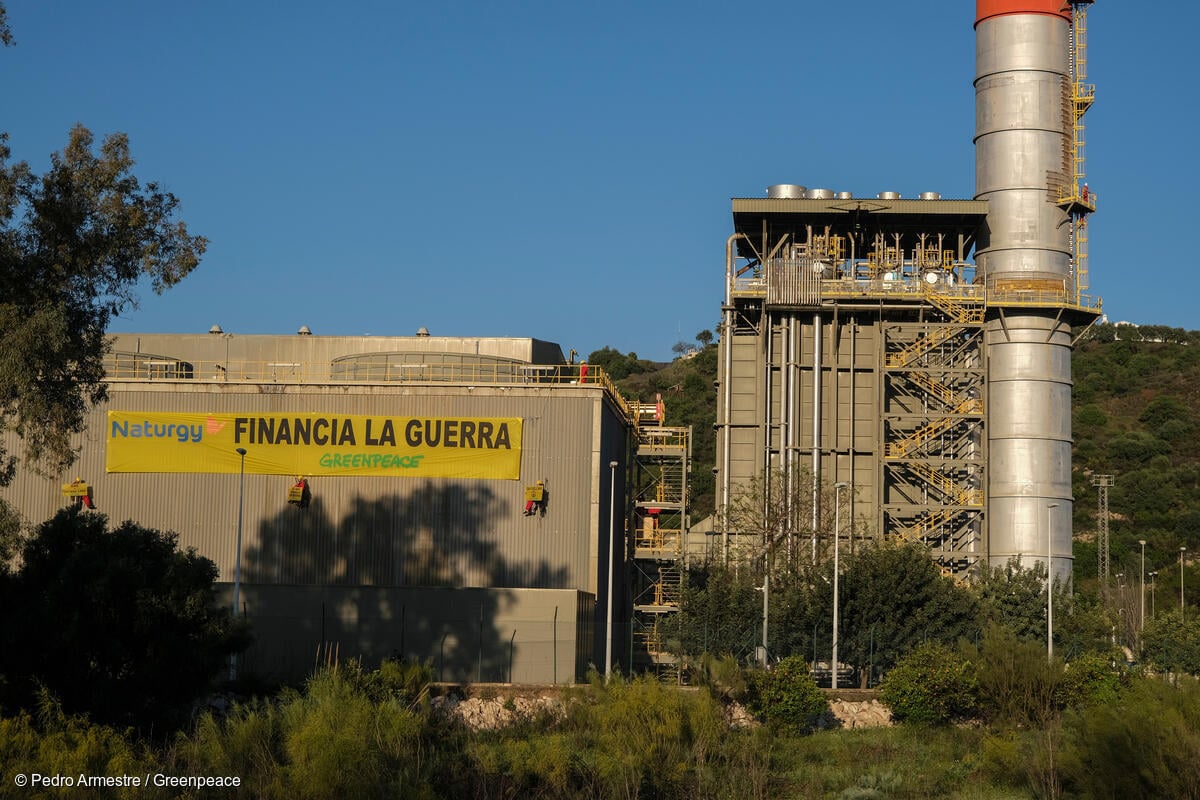Linz, Austria/Brussels – Greenpeace activists challenged EU energy ministers meeting in Linz to stop using billions of public money to fund coal, gas and nuclear energy, which heat the climate, contaminate the environment and endanger lives.

*** High-res photos & video available soon/here. ***
European energy ministers are meeting in the Austrian town to discuss new EU electricity market rules. The rules will cover a little-known type of subsidies, called capacity mechanisms, which are given almost exclusively to coal, gas and nuclear power plants, as revealed in a new Greenpeace report.
As ministers arrived, Greenpeace broadcasted a ‘public service announcement’ denouncing spending on fossil fuels and nuclear energy. A group of 13 activists from three countries (Austria, Germany and Slovakia) unfurled a banner reading “Stop cash for coal, gas & nuclear”.
Greenpeace EU energy policy adviser Sebastian Mang said: “While many European leaders pay lip service to fighting climate change, they are simultaneously bankrolling dirty energy that heats the planet, contaminates the environment and locks us into a fossilised past. It’s time for them to stop diverting public money to keep unprofitable, polluting plants running, and fully commit to making 100% renewable energy a reality.”
This autumn, national governments and the European Parliament will decide whether or not capacity mechanisms will be restricted by EU law. Capacity mechanisms are a controversial type of subsidy supposedly to ensure supply in case extra power is needed. The plants that receive the subsidies are rarely called on (here are some examples from the UK and Germany) and, when they are, they often fail.
The European Commission and Parliament want to substantially limit capacity mechanisms, because more electricity can already be produced overall in the EU than peak demand would require, and because capacity mechanisms distort the market by artificially lowering the price of electricity produced by the polluting plants that receive them.
However, many national governments are pushing to extend capacity mechanisms. France, Poland, Hungary, Greece, Ireland and the UK have issued a joint paper supporting capacity mechanisms. Italy had initially signed, but last week withdrew support.
The Greenpeace research on capacity payments for the first time attempts to quantify the amounts that are given to fossil fuels and nuclear energy across Europe. Despite the lack of publicly available data, Greenpeace uncovered at least €58 billion that is being taken from energy bills for capacity mechanisms. The research found that 98% of the money spent on capacity mechanisms went to fossil fuel and nuclear energy.
The next negotiating session between European governments and the Parliament is scheduled for 18 October in Brussels.
*** High-res photos & video available soon/here. ***
Contacts:
Adam Pawloff – Greenpeace Austria, climate and energy campaigner: +43 (0)650 3722524, [email protected]
Sebastian Mang – Greenpeace EU energy policy adviser: +32 (0)407 623167, [email protected]
Stella Haller – Greenpeace Austria, press officer: +43 (0)665 8169716, [email protected] and [email protected]
Greenpeace EU press desk: +32 (0)2 274 1911, [email protected]
For breaking news and comment on EU affairs: www.twitter.com/GreenpeaceEU
Greenpeace is an independent global campaigning network that acts to change attitudes and behaviour, to protect and conserve the environment and to promote peace. Greenpeace does not accept donations from governments, the EU, businesses or political parties.



